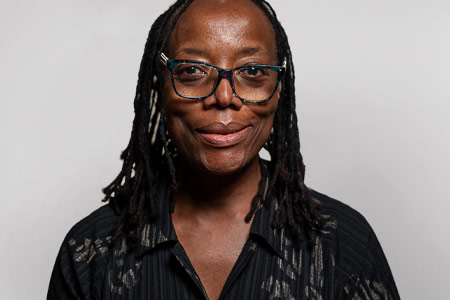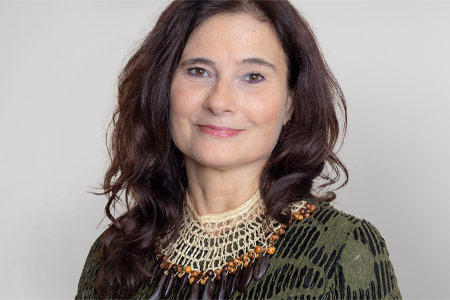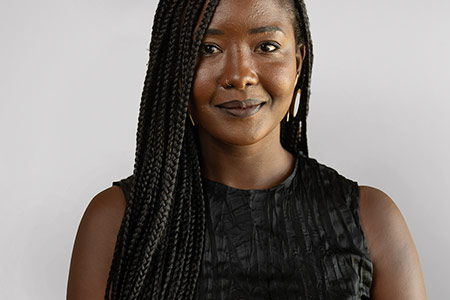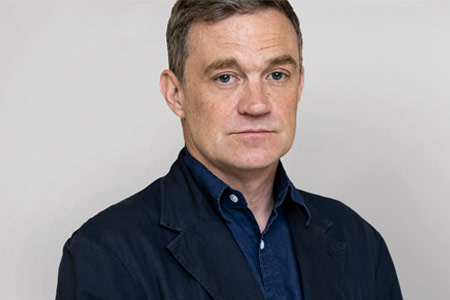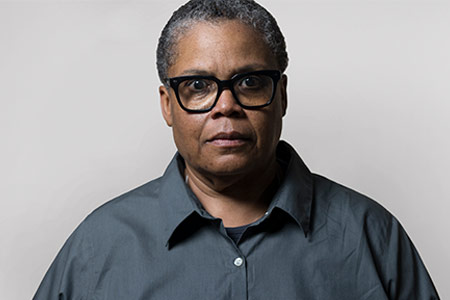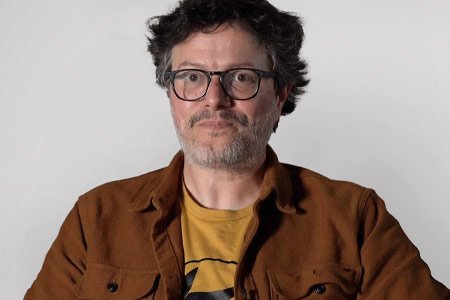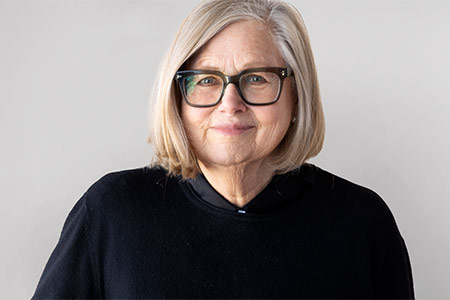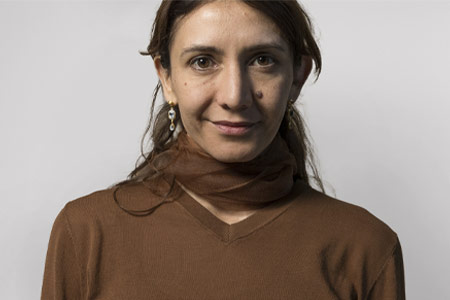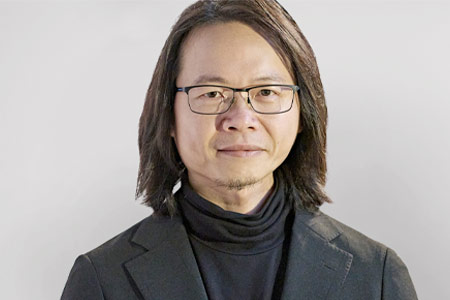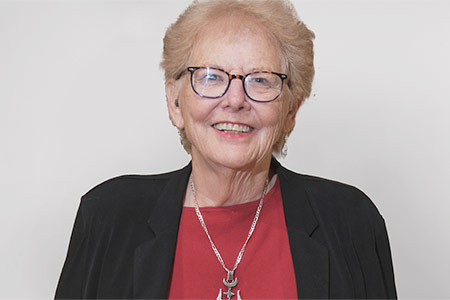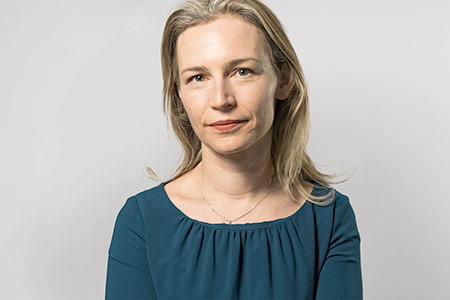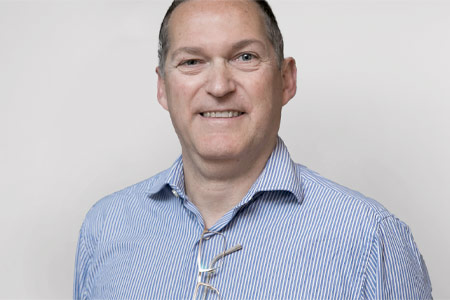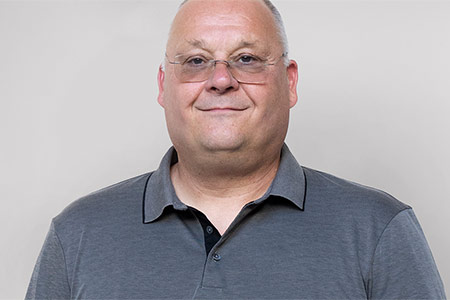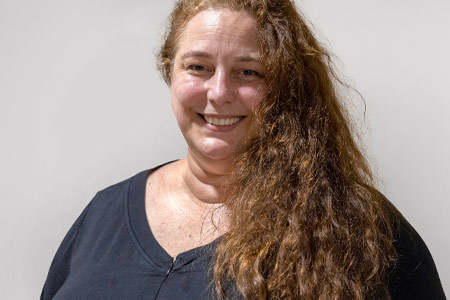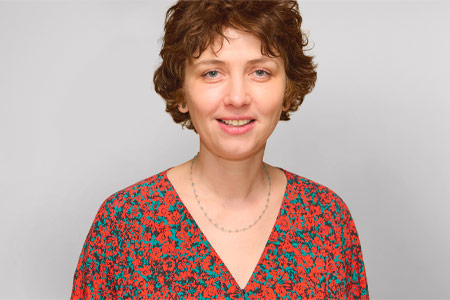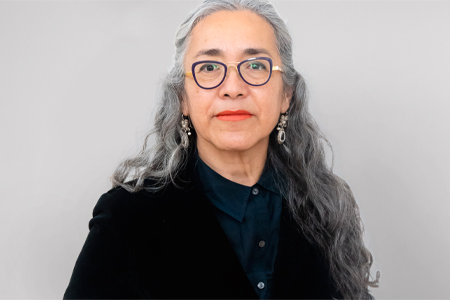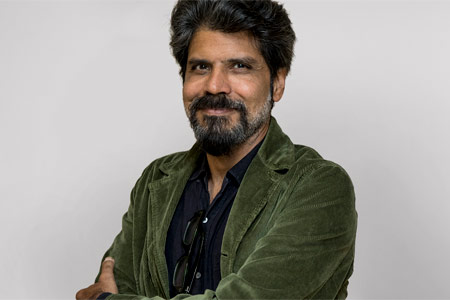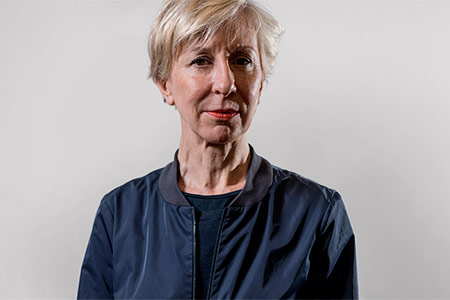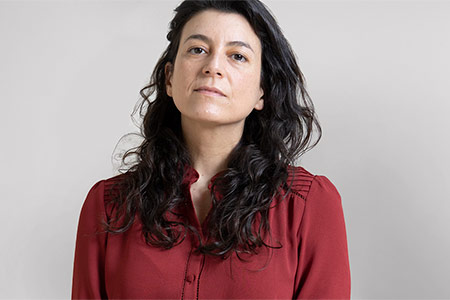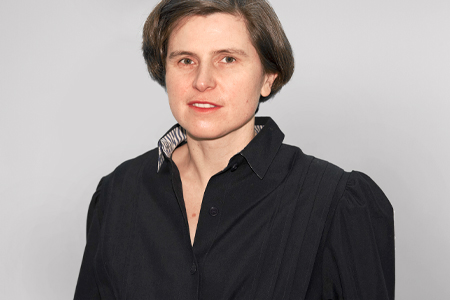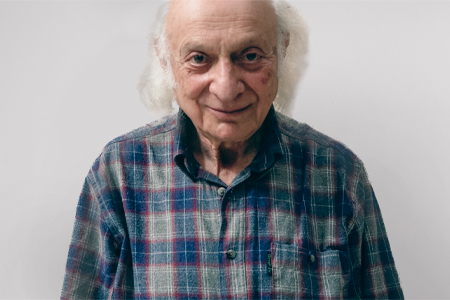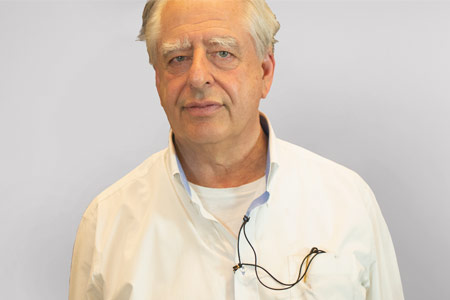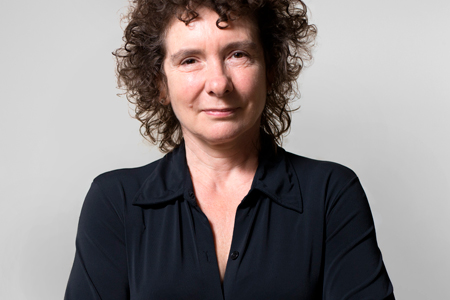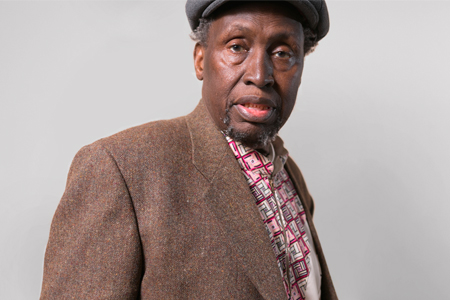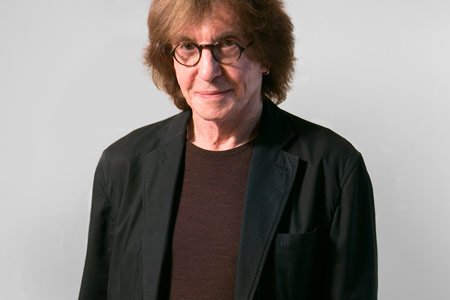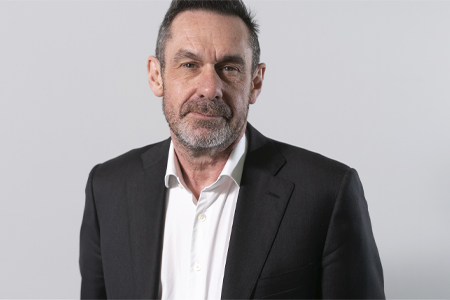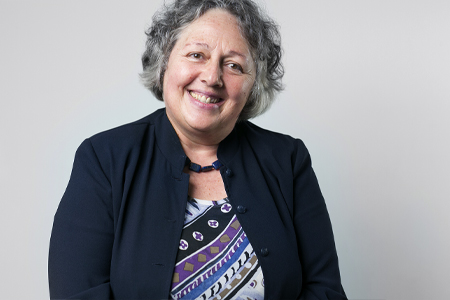CCCB Interviews
We speak with some of the most important names on the international cultural scene to get their ideas and thoughts out to you in an enjoyable and informative way. Each month, we publish a round of “CCCB Interviews” about the internet and digital culture, feminisms, climate change, science and the humanities, cities and public space, philosophy, language and literature, populisms and post-capitalism, as well as many other topics.
Tsitsi Dangarembga: “The patriarchal and colonial system wants us silenced”
Writer and filmmaker, Tsitsi Dangarembga uses storytelling as a tool for both denunciation and emancipation. In this interview, she speaks about the body, memory and silence as battlegrounds for African women and reflects on the role of literature in challenging patriarchal and colonial structures. ...
Timothy Snyder: “Freedom is a practice that must be defended every day”
Historian Timothy Snyder examines how freedom, often taken for granted, is, in reality, a fragile asset that demands constant vigilance and action. In this interview, he reflects on the threats facing modern democracies – from authoritarianism to disinformation – and explores how ...
Oyèrónké Oyewùmí: “I use gender to illustrate the impact of colonisation”
Nigerian sociologist Oyèrónké Oyewùmí is a leading figure in African and decolonial feminism. In this interview, she examines key themes in her academic research, questioning the universality of gender as an analytical category and critiquing the impact of ...
Eliane Brum: “The climate collapse is the responsibility of a minority"
Eliane Brum is a journalist and writer, and one of the leading voices in exploring the environmental and political struggles of the Amazon. Brum highlights how a powerful and predatory minority is destroying the rainforest and violating the rights of indigenous peoples and communities along ...
Nzinga Biegueng Mboup: “We get in Senegal a lot of migrations from Europe”
Senegalese-Cameroonian architect Nzinga Mboup analyses the housing situation, the economy, the digital world and the energy and food model in Senegal. Mboup criticises the dominant narratives about migrants, proposes the creation of opportunities within African countries and defends a migration ...
Patrick Radden Keefe: “Trying to hold the powerful to account is one of the jobs of journalism”
Writer and journalist Patrick Radden Keefe's underscores the importance of relevant, attractive, and enduring storytelling in journalism and reflects on non-fiction literature. Radden Keefe argues that narrative is a tool for conveying complex truths, challenging the powerful and capturing ...
Mark Toscano: “The history of cinema is much richer than we expected”
Mark Toscano is a filmmaker, curator and film preservationist at the Academy Film Archive in Los Angeles. He has been working in the preservation, restoration and programming of experimental films for over twenty years. He is a knowledgeable advocate of artistic and experimental cinema, championing ...
Margaret Crawford: “Suburbanization is not the problem. It is the solution”
Margaret Crawford is an urban planner and one of the foremost experts on urban transformations in suburban areas in the United States. She champions the complexity and socio-cultural diversity of American residential neighbourhoods, suggesting that much of the criticism they face arises from ...
John Wilson: “Real life is just naturally funny”
John Wilson is a documentary filmmaker and the creator and director of How To with John Wilson, a humorous documentary series that chronicles the everyday lives of ordinary New Yorkers. His ability to film mundane scenes and characters and tell extraordinary, human and amusing stories ...
Ottessa Moshfegh: "When we lie to ourselves, we are writing a new story"
Ottessa Moshfegh stands out as one of the most distinctive and insightful American writers of her generation. Her short stories and novels prompt us to contemplate the human condition. We delve deeper into Moshfegh’s writing, exploring how she perceives fiction and truth, her use of language ...
Yuk Hui: “We are living in a gigantic technological system”
We talk to the philosopher Yuk Hui about the shift from the industrial to the cybernetic age, the uselessness of our current-day dystopian discourses and the need to encourage a diversity of technological thinkings able to combat the homogenisation of capitalism. Read the full article
N. Katherine Hayles: “We need a more comprehensive view of cognition”
Katherine Hayles is one of the most relevant authors in the field of posthumanism. Her work places the focus on materiality and cognition and criticises the understanding of humans as autonomous and independent subjects. In the age of AI, her ideas lead us to a new vision of human evolution. Read ...
Alana Portero: “Cynicism is reactionary”
After the success of her first novel, the writer Alana Portero says she feels herself to be in a privileged position. But the road has not been easy: Bad Habit comes after years of work done between care, poems and media columns. Between fiction and activism – this ...
Lea Ypi: “My idea of freedom is a moral idea”
Lea Ypi was eleven years old when her country, Albania, began to transition from communism to a liberal democratic system. With the fall of the regime, the idea of having grown up in a free country also evaporated, while at the same time she realised that the freedom of capitalism was another ...
Francisco J. Doblas Reyes: “Limiting the impacts of global warming is in our hands”
Fighting climate change is about more than just saving polar bears (although that is also part of it). Global warming is affecting human lives and the ecosystems that sustain them. Extreme events such as floods, cyclones and forest fires have already become more frequent. The latest report ...
Cas Mudde: “The far right is normalised”
Cas Mudde is one of the world’s leading experts on the far right, a movement about which he has written seven books and has been following closely from a young age. His contribution helps us to put into context and understand what stripe of far right we’re dealing with at a ...
Tania Bruguera: “We are being cut off from the possibility of thinking about what has not yet happened”
Tania Bruguera is an artist known around the world for having pushed back the boundaries of performance. An amalgam of politics and art, her work is an indictment of institutions and the mechanisms of government domination. The struggle for freedom of expression has also led Bruguera to engage ...
Colson Whitehead: “There’s this whole secret city that’s being built when everyone else is asleep”
Colson Whitehead is in love with New York, the city where he was born and the setting for his latest novel, Harlem Shuffle. We talked to him about what lies hidden behind city streets and buildings, and about the memory and history of places. Read the full article
Anna Starobinets: “The authors and readers of dystopias are like canaries in a coal mine”
Anna Starobinets is a journalist by training and a writer by profession. Born in Moscow in 1978, the author’s bright literary career has been interrupted by the Russian invasion of Ukraine. Like many other writers and intellectuals in Russia today, Starobinets has had to take the painful ...
Cristina Rivera Garza: “To write is to create empty space”
In this interview, Cristina Rivera Garza, director of the Ph.D. in Creative Writing in Spanish at the University of Houston – the first Ph.D. of its kind in the United States – gives us a master class on writing as a process and as a collective act of accompanying readers. Read ...
Pankaj Mishra: “Modernisation is offered as a liberation, and yet it comes with many psychic costs”
Pankaj Mishra takes a critical view of the myths of modernity and reflects on the consequences of imposing the Western model on post-colonial countries. We take a look at his work as an essayist and his recent return to fiction. Lee el artículo entero
Silvia Fehrmann: “Faced with the rise of fascism, generating networks and communities is more important than ever”
Silvia Fehrmann has extensive experience of promoting educational projects and nurturing creativity and cultural exchange. She heads Artists-in-Berlin, a prestigious programme of residencies open to creators from around the world. We talk to her about how to bring cultural institutions up to ...
Anil Seth: “Reality is a controlled hallucination”
With his tireless activity as a science writer and theories such as the predictions our brain makes when it perceives reality and configures our experience of it, the British neuroscientist Anil Seth has become one of the most representative and authoritative voices in the study of consciousness. He is the author of numerous important articles and of a best-selling book in which he tries to explain the meaning of what it feels like to be ourselves: he doesn’t talk about identity, but encourages us to be aware of the privilege of being an organism that is alive and knows it. ...
Mar Santamaria: “The city is the artifact and the strategy that will enable collective survival”
The urban environment is the backdrop to our lives, and it is expected to be home to at least 70% of the world’s population by 2050. The city reflects the socio-economic world around us while at the same time conditioning and defining us as a society. It permeates each and every one of ...
Judit Carrera: “The purpose of cultural centres is to generate connections”
Interview with Mathieu Potte-Bonneville and Judit Carrera
In a world affected by the pandemic, the climate crisis, technological transformations and war, museums and cultural centres are re-examining their role and involvement in society. In this conversation, Mathieu Potte-Bonneville, Director of the Culture and Creation Department at the Centre ...
Samanta Schweblin: “The Latin American women authors of my generation feel the joy of having arrived at a party in full swing”
Translated into more than 25 languages and renowned for the magnetism of her fantastic stories, Argentinean writer Samanta Schweblin explains how she created two of her most well-known works: Little Eyes and Fever Dream. She talks about writing during the pandemic ...
Kyle Chayka: “The platform connects us but also homogenizes our tastes”
Minimalism is a trend. But this aesthetic current, which encourages people to have and need less, has been swallowed up by the logic of capitalism and used to homogenise aesthetic trends across the board. Kyle Chayka, who writes for The New Yorker, reflects on this process while ...
Judith Schalansky: “Our planet is also an island in the known universe”
Books such as Atlas of Remote Islands and An Inventory of Losses have made Judith Schalansky a unique name in the world of literature. Taking advantage of her visit to the CCCB, we talk to her about her work, which invites readers to travel through a universe ...
Boris Lehman: “For me, life and film are indivisible”
Despite a prolific career and a strong presence in arthouse cinemas and festivals, Boris Lehman is unknown to the general public. His experimental films are made at an unhurried pace, working with few resources and non-professionals. Films full of simplicity and everydayness, where the work ...
William Kentridge: “There are fault lines that come from the colonial period throughout the world”
South African artist William Kentridge does not trust those who blindly embrace their own certainties without considering doubts and paradoxes. Ambiguity and contradictions are at the heart of his work, which has grown and transformed to the beat of multifaceted South Africa. We ...
Rimini Protokoll: “There’s not such a big difference between us and the audience”
They are stage directors and they are also anthropologists, documentarians, social researchers, communicators, political scientists, robotics engineers, etc. It has been 20 years since Helgard Haug, Stefan Kaegi and Daniel Wetzel founded Rimini Protokoll in Berlin, and they have created around ...
Cassandra Khaw: “It’s just a question of time before video games are accepted as culture”
Since the beginning of time, humankind has told stories. But just as happened with the cinema, popular culture is taking longer to accept video games than some would like. We talk to Cassandra Khaw about the narrative potential of video games, the situation of indie games in relation to blockbusters, ...
Jason Y. Ng: “Violence will only lead to more escalated violence”
Hong Kong has become the canary in the coalmine in a world marked by the tensions between the demands of complex societies and the power structures incapable of fitting in with them. We talk with Jason Y. Ng about what makes Hong Kong a case to be followed with attention. Read the full article
Jeanette Winterson: “I believe in human beings, even though they have done some terrible things”
In the late 20th century, Jeanette Winterson forged a path in the literary world with books such as Oranges Are Not the Only Fruit, Written on the Body and The Passion, titles which would attract a cult following and would crown her as a leading author for the queer community.
Carolin Emcke: “We need a language of utopia to accompany our discontent”
Having been refracted through the media so many times, the word violence has accumulated an infinite number of meanings, in the form of images and sounds, and has ended up imploding. Voided inside, it serves only to make noise, propping up simplistic tales that seek sensationalism...
Valeria Luiselli: “What right do we have to talk about issues that are not our own?”
Denouncing the things that we witness is a task that requires constant self-awareness, knowing where we are writing from, recognising the limitations of the position that we occupy in society and common sense, intelligence and sensitivity. We take advantage of the visit by Valeria Luiselli ...
Renata Ávila: “The Internet of creation disappeared. Now we have the Internet of surveillance and control”
Three decades ago, the Internet promised to be a democratising place to be turned to in the flight from the inequalities of the analogue world. It was presented to us a field in which to find freedoms, boundless creation, communication that transcended frontiers and free education for all. ...
Ngũgĩ wa Thiong’o: “Europe and the West must also be decolonised”
Writer Ngũgĩ wa Thiong’o has always questioned the literary tradition written in colonial languages, analysing the dynamics and the functioning off colonised societies and their relationship with the colonisers. Thiong’o defends the mother tongue as a weapon against ...
Henry Giroux: “All education is a struggle over what kind of future you want for young people"
Education always plays a central role – whether in a visible or a veiled way – in any ideological project. For anyone backing the transformation of the world into a fairer, more caring and democratic place, education is key, but people who believe that market logics are fundamental ...
Mona Eltahawy: “Patriarchy is the form of oppression with which the entire world struggles”
Mona Eltahawy, a prominent feminist in the Arabic-Muslim world, talks to us about sources of oppression for women – the state, the street and the home – and how the feminist struggle should not focus on attaining equality, but on destroying the patriarchy. Her first book, Headscarve...
Paul Mason: “Information technology is going to erode the need for work”
Successive economic crises have led us to visualise the structural contradictions of the capitalist system. For the first time in many years, scenarios are re-emerging that until recently seemed utopian: the transition towards a society beyond capitalism, a post-work society based on automation ...
Marcus du Sautoy: “Humans will never know if the universe is infinite”
Mathematics are a key language to understand the complex (and opaque) systems that make the world go round, be it economics, algorithms or AI. Marcus du Sautoy is a Professor of Mathematics at Oxford University and an impassioned science advocate of which he left evidence when attending ...
Rosi Braidotti: “What is necessary is a radical transformation, following the bases of feminism, anti-racism and anti-fascism”
Philosopher Rosi Braidotti talks about the post-human ethic, the devastating effects of neoliberal capitalism, and her proposal for affirmative resistance. Braidotti visited the Thinking Biennale Open City to explain her new post-anthropocentric perspective, but she was unable to avoid discussing ...
